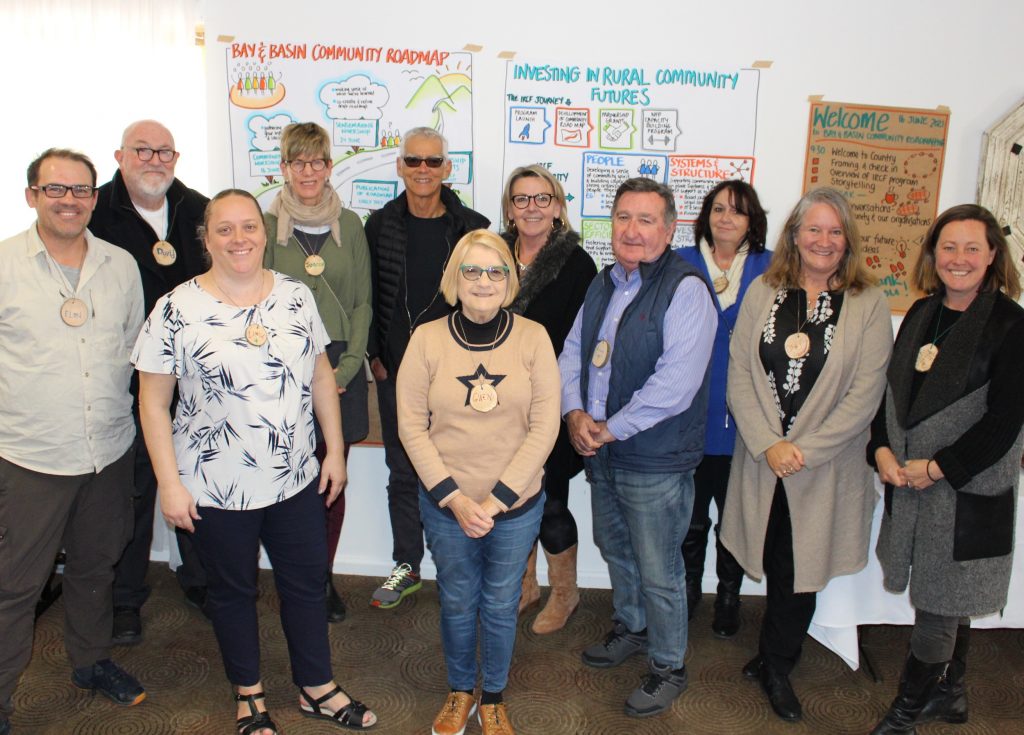Foundation for Rural & Regional Renewal (FRRR)
Four local NFPs awarded grants
In partnership with the Bendigo Bank Community Enterprise Foundation, FRRR has awarded a further $50,293 to support four not-for-profit organisations (NFPs) in the Bay & Basin area. Bay & Basin NFPs have now received nearly $150,000 to date through the Investing in Rural Community Futures (IRCF) program, which is helping to address locally-identified priorities.

The IRCF program is a multi-year program designed to foster collaboration between local NFPs and strengthen their capacity, so they can continue to have a positive impact on the vibrancy and wellbeing of their communities. The program operates across the South Coast region, and in three other locations across NSW.
As part of the IRCF program, local leaders participated in community meetings and created a roadmap of the future opportunities they envision for their communities. This helped to identify the areas where the community groups and NFPs need support and ensures that the solutions being provided through the program are community-led.
The four funded projects cover various areas including strategy development, resilience training, equipment upgrades and human resources. One example is the Huskisson Op Shop who are engaging a paid Coordinator to support the Op Shop Volunteers, as well as a Business Advisor, who will help to modernise the Op Shop to support their food pantry in St Georges Basin.
Natalie Egleton, CEO of FRRR, said that multi-year programs, like IRCF, are vital for these remote, rural and regional communities.
“The NFPs in Bay & Basin play a big role when it comes to the quality of life for people living in these communities. Local leaders know what will work, so our role is to support them to create locally-led solutions that can be implemented over a series of years. This ensures that these communities thrive long into the future,” Ms Egleton said.
David Impey, CEO Community Enterprise Foundation, the Bendigo and Adelaide Bank’s charitable arm, said that the grant recipients are committed to developing all aspects of their organisations.
“It’s inspiring to see these people who are willing to take such a multi-faceted approach when it comes to building resilient communities. Through this program they’re developing their skills, strengthening their relationships with their peers, improving their processes and engaging in some really productive conversations.
“These organisations are powerful advocates for their communities. We’re very thankful to be able to support their efforts in creating sustainable and long-term solutions that will see the lives of everyone in Bay & Basin made that much more vibrant,” Mr Impey said.
The four projects being funded are:
- Vincentia Ratepayers and Residents Association Inc, Vincentia – Prepare, Develop, Publish and Regularly Update the Vincentia Ratepayers and Resident Association 2030 Strategic Vision Document – $7,000
- Sussex Inlet District Chamber of Commerce Incorporated, Sussex Inlet – Sussex Inlet, a Vibrant Future- Building the capacity of our communitythrough resilience training and by developing a marketing campaign – $3,900
- Sanctuary Point Community Pride Incorporated, Sanctuary Point – Boosting Pride by fostering community engagement and enhancing organisational capacity through the development of a website, communications strategy, and accounting software – $10,309
- UCA – Bay & Basin, St Georges Basin – Growing the Husky Op-shop by building organisational capacity to enable a stable of aligned social enterprises – $29,084.
In addition to Bay & Basin, the IRCF South Coast program is also working in Nowra, Batemans Bay and Ulladulla, with the support of The Snow Foundation and in Junee, Leeton and Nambucca Valley in partnership with the Vincent Fairfax Family Foundation.
For more information about the Investing in Rural Community Futures program visit – https://frrr.org.au/ircf-program/.

